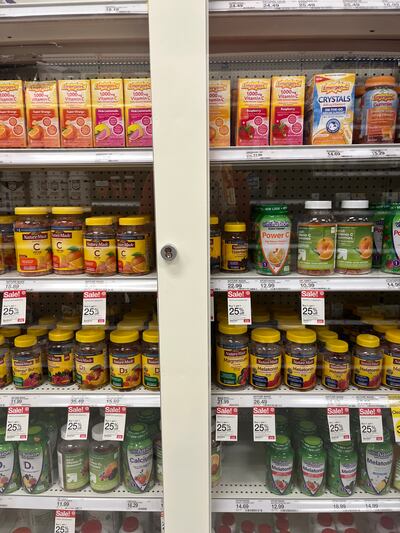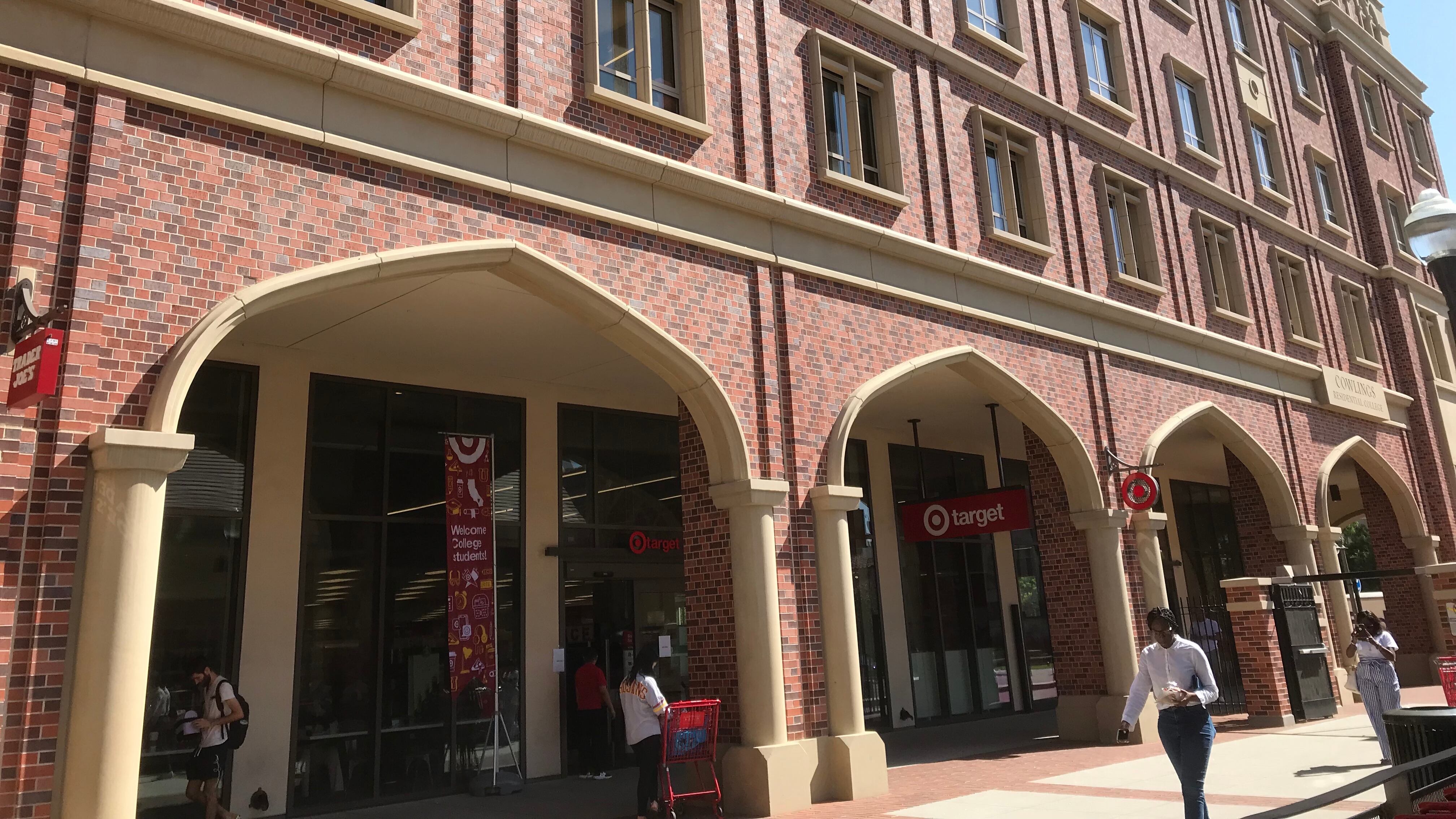The USC Village Target has locked up more merchandise behind “theft-proof” cases, requiring shoppers to ask employees for access to hygienic products and other necessities.
Customers must now ask an employee to unlock items such as toothpaste, skin care and deodorant. The implementation of these “theft-proof” cases followed the retail corporation’s decision to close nine Target store locations due to a rise in shoplifting and threats against employees, according to a press statement released September 26.
The security addition to the Target in the USC Village also came just a few weeks after students noticed a similar change to the on-campus Seeds Marketplace, where self-checkout counters and grab-and-go options have disappeared.
Students and residents of the area reacted to these changes to the Target.
“I think it’s a little bit bogus, in my opinion,” said Isai Ortega, a junior majoring in law, history and culture who was coming out of the store. “I think that the way Target tries to secure things is kind of problematic, in the sense that it’s labeling a certain community as problematic or just as a disposable threat.”
Kiyah Brown, a junior majoring in business finance, also said the locked merchandise seems like an extreme measure.
“I definitely feel like some of the items that they’re locking up are kind of excessive. It’s not necessary to lock up mouthwash and toothpaste,” Brown said. “Those are basic necessities that everyone needs. But I can understand the more expensive items that are $50 and up, and the alcohol, of course.”
Along with monitored security cameras placed throughout the store for theft prevention, the locked cases are meant to inhibit repeat offenders and also offset the revenue losses Target has experienced in the past years. The corporation revealed in May that it expects losses from theft to increase by $500 million this year, potentially rising to $1.2 billion, according to the Associated Press.

“Our team continues to face an unacceptable amount of retail theft and organized retail crime,” Target CEO Brian Cornell told analysts, according to the Associated Press. “Unfortunately, safety incidents associated with theft are moving in the wrong direction.”
Bella Barki, a junior business student and a former Target employee, shared her insights on the decision to implement “theft-proof” cases.
“It adds a few more steps, but at the same time, I get why they would do it,” Barki said. “There were a lot of people who would come in [to my store] and attempt to steal. I feel like [the USC Village Target] has pretty good asset protection.”
Regardless of Target’s goal to make up the theft-related profit losses, students such as Joseph Park, a sophomore screenwriting major, have said that they haven’t shopped at Target since merchandise started being locked up. Barki shared a similar sentiment, saying that she has only been to Target once since the cases were added.
“I think there’s just better ways to do it,” Ortega said. “Putting cases on basic necessities seems like a little bit of a stretch.”
Target’s media relations department did not respond to Annenberg Media’s request for comment.
